Entrepreneurship Training Tool Experimental Evidence from Benin
- Title
-
Evaluating an Entrepreneurship Training Tool: Experimental Evidence from Benin
- Research Institute
-
Center for Evaluation and Development (C4ED)
- Funding period
-
from: 01.03.2023
to: 30.06.2025 - Country and Region
-
Benin; Atlantique, Littoral, Ouémé, Mono, Atacora sowie den Gemeinden Djougou et Copargo in der Region Donga
- Sector
-
MSMEs and employment promotion
- Development Organisation
-
Deutsche Gesellschaft für Internationale Zusammenarbeit (GIZ)
- Research Design
-
e.g. DiD; RCT etc.
Project description
Short Description
Evaluating an Entrepreneurship Training Tool: Experimental Evidence from Benin
Poverty remains a major global concern, and job creation is a key strategy to help combat it. Small and Medium Enterprises (SMEs) represent the major share of businesses in all countries, providing a large proportion of jobs and making a major contribution towards innovation, growth and social stability. However, as part of our globalised and liberalised economy, growth-oriented SMEs are under increasing competitive pressure, partly because they lack the entrepreneurial prerequisites to thrive.
The SME Loop is a training programme focused on building the capacity of SMEs, with the aim of increasing business turnover (translating into revenues and profits) and creating sustainable jobs over the long term. In the process, the intervention also aims to benefit young people and female entrepreneurs in particular.
DEval will fund the impact evaluation of the SME Loop in order to measure whether participation in the SME Loop improves entrepreneurial practices, the economic performance of the businesses as well as employment within the businesses.
Context
The current government of Benin has set ambitious targets regarding economic, education and employment policy. The overall aim is long-term inclusive economic growth based on the agro-industry and service sector. This aim shall be achieved through key reform goals.
The SME Loop contributes to the strategic goals of (1) strengthening human capital and (2) increasing economic productivity and competitiveness. A strong and dynamic private sector is necessary in order to achieve growth and economic development. Therefore, the development of SMEs is an essential condition to ensuring and maintaining growth.
Innovation & Method
The SME Loop is an innovative, 6-month SME support programme, consisting of training and individualised coaching components. Each year, the SME Loop in Benin runs on a pre-selection model – in which 16 classes of SMEs enroll for training under a staggered schedule. The pre-selection process includes an evaluation of the business and entrepreneurial profile, including turnover, number of employees and gender, as well as the age, education and experience of the CEO/SME head. For each of the 16 classes, at least 40 SMEs are pre-selected as being eligible by the implementing partners: the Chambre de Commerce et d’Industrie du Bénin (CCIB) and the Agence Nationale des Petites et Moyennes Entreprises (ANPME).
While the training and coaching programme lasts six months, the pre-selection process takes place in the two months prior to the start of the course. The implementation design for the SME Loop represents an opportunity to run a Randomised Controlled Trial (RCT). As the aim of this evaluation is to estimate the causal impact of the SME Loop training on entrepreneurial success, the evaluation design that best fits the implementation consists of two connected RCTs for each implementation year. As part of this experimental approach, 25 out of the minimum of 40 pre-selected SMEs in each class will be randomly assigned for treatment and will participate in the SME Loop.
Expected results/Research questions
- RQ 1: Does the SME Loop improve the entrepreneurial knowledge and practices of the beneficiaries?
- RQ 2: Does the SME Loop improve the economic performance of the beneficiaries' businesses?
- RQ 2.1: Does the SME Loop increase the sales of the beneficiaries' businesses?
- RQ 2.2: Does the SME Loop increase the profits of the beneficiaries' businesses?
- RQ 3: Does the SME Loop improve the resilience of the beneficiaries' businesses?
- RQ 4: Does the SME Loop contribute to the formalisation of the beneficiaries' businesses?
- RQ 4.1: Does the SME Loop increase the size of the beneficiaries' businesses?
- RQ 4.2: Does the SME Loop contribute to the improvement of working conditions in the beneficiaries' businesses?
- RQ 5: Does the SME Loop increase access to finance?
- RQ 6: Does the SME Loop help beneficiaries to invest?
- RQ 7: Does the SME Loop contribute to the creation of (decent) employment in the beneficiaries' businesses?
- RQ 8: To what extent is the SME Loop gender- and youth-sensitive?
- RQ 9: To what extent are the skills promoted consistent with the needs of the entrepreneurs?

